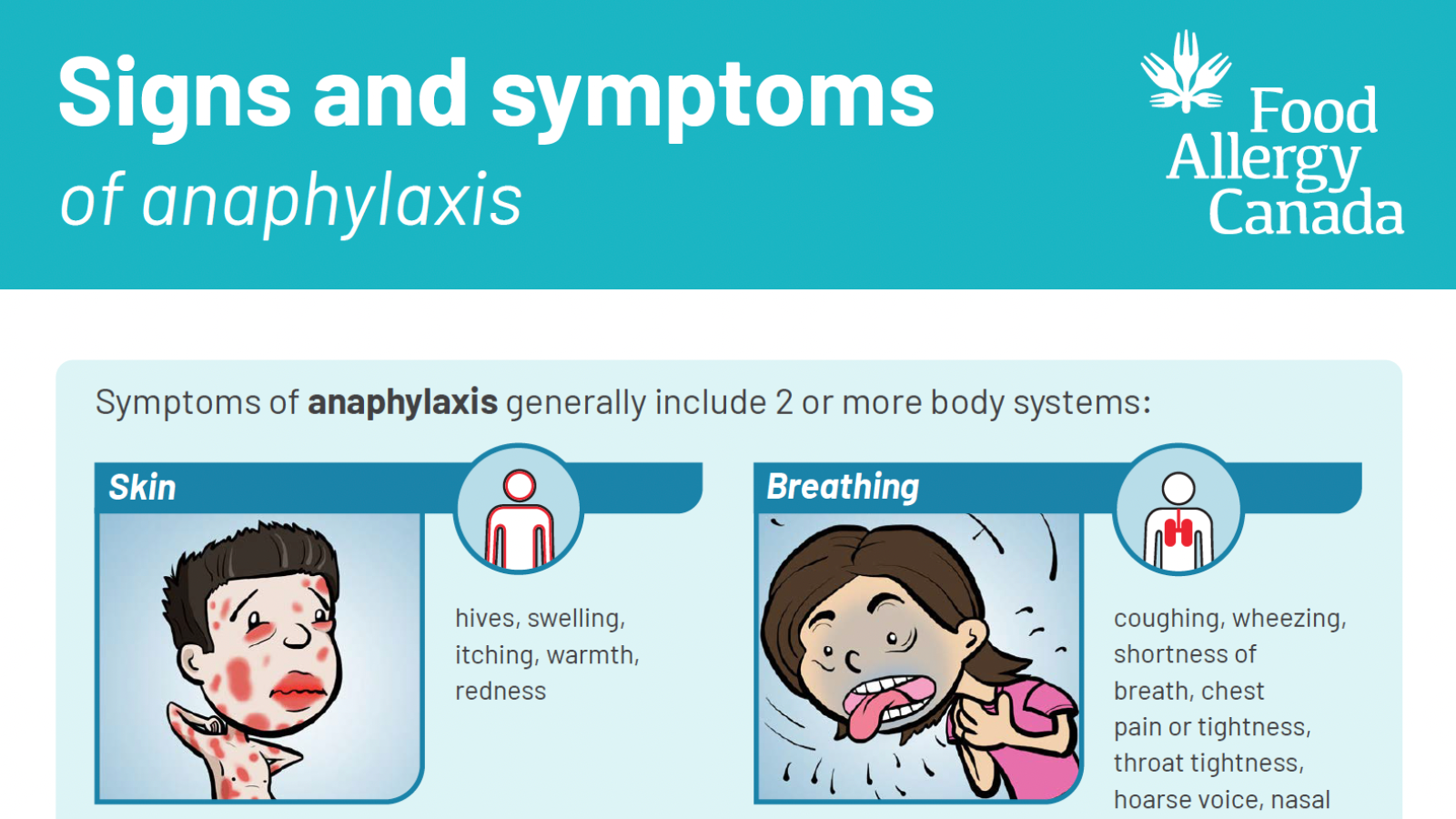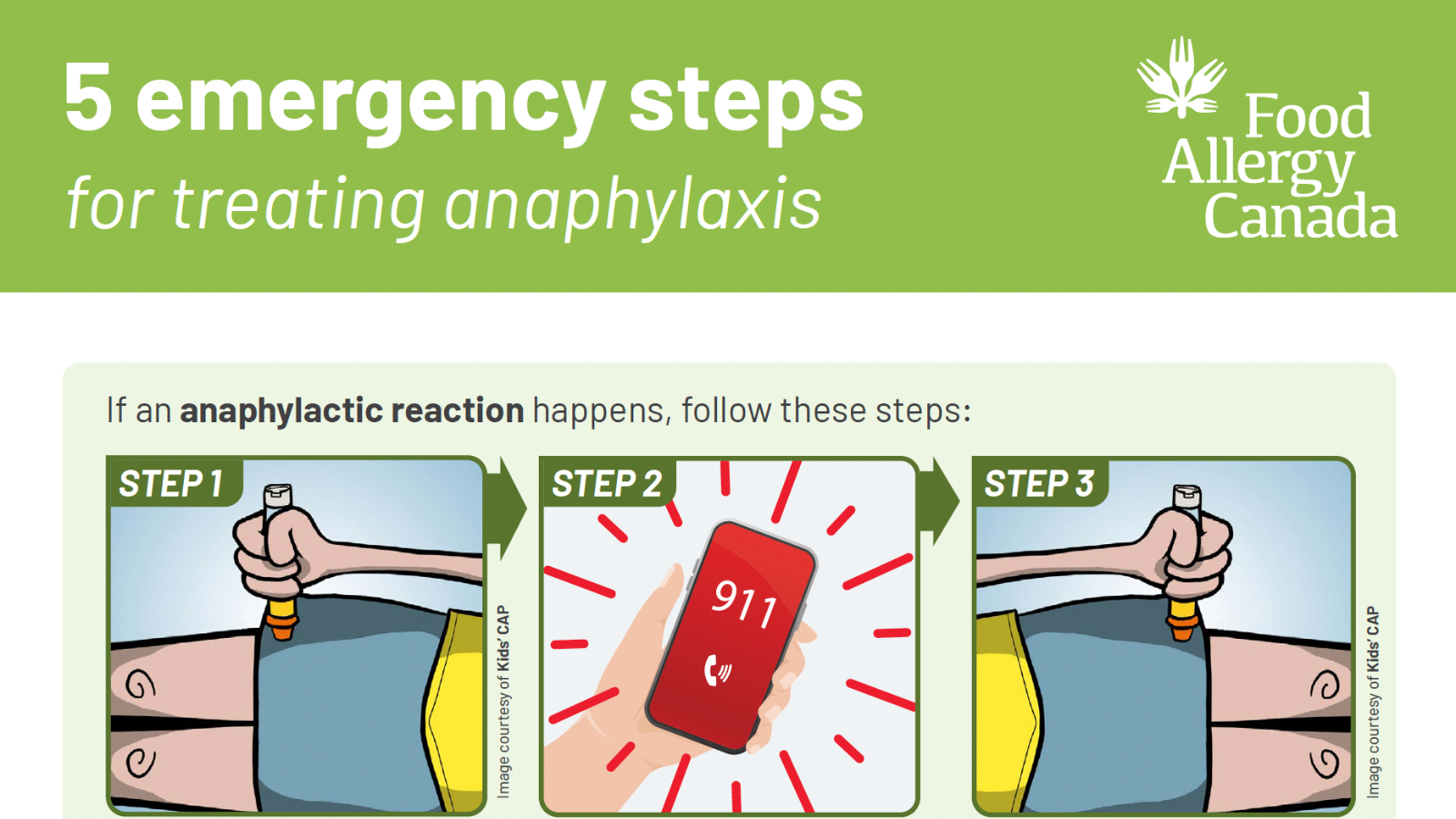Ask the allergist is a regular feature in our newsletters where Canadian allergists answer your questions!
Please note: The allergists featured in this series answer questions on general topics, please talk to your doctor if you have questions about your own health or the health of your child.
This month Dr. Julia Upton answers a question about the severity of food allergy.
If someone has only had mild reactions to a food, do they have a “mild” food allergy?
Allergic reactions to food can range from mild to severe. Given this, the ability to predict the severity of food allergy is very important to patients, their families and medical team.

In controlled environments, such as in research, there are more consistent results when the same food is given to a person by an oral food challenge and the challenge is repeated a year later, for example. The dose or amount of food they react to is similar, as are the signs and symptoms they experience, from one challenge to the next.
However, the real world can be different. There are different variables that could change the reaction and what was mild in research might be severe in a different situation.
One is the amount of food ingested: the reaction may be different with a tiny amount versus a large amount, such as a sauce containing pureed tree nuts consumed by someone with a tree nut allergy.
Also, there can be differences in co-factors, meaning other factors which can negatively affect the allergy. Co-factors which can make an allergic reaction to a food worse include having an illness, having uncontrolled asthma, exercise, certain medications such as ibuprofen (NSAIDS), timing of the menstrual cycle, sleep deprivation, and others.
Because it is hard to predict the severity of the next reaction, we tend to counsel patients and families to be ready for a possible severe reaction with education about the signs and symptoms of anaphylaxis, to carry an epinephrine auto-injector, and to use it promptly upon the first signs of anaphylaxis.

Dr. Julia Upton is on staff at the Hospital for Sick Children in the Immunology and Allergy Department; and an Associate Professor in the Department of Paediatrics at the University of Toronto. She is the past Section Chair of the Anaphylaxis and Food Allergy Section of the Canadian Society of Allergy and Clinical Immunology. Dr. Upton is also a member of our Healthcare Advisory Board.
Please note: Dr. Upton is answering as an individual allergist and her answers do not constitute an official position of her affiliated organizations. Her responses are for informational purposes only and do not constitute specific medical advice, recommendations, diagnosis, or treatment. Please talk to your doctor about any concerns or questions you may have regarding your own health or the health of your child.
Do you have a food allergy-related question you’d like to ask an allergist in the months to come? If so, send it along to us at info@foodallergycanada.ca.
Tags: Anaphylaxis, ask the allergist, Reactions, signs and symptoms

